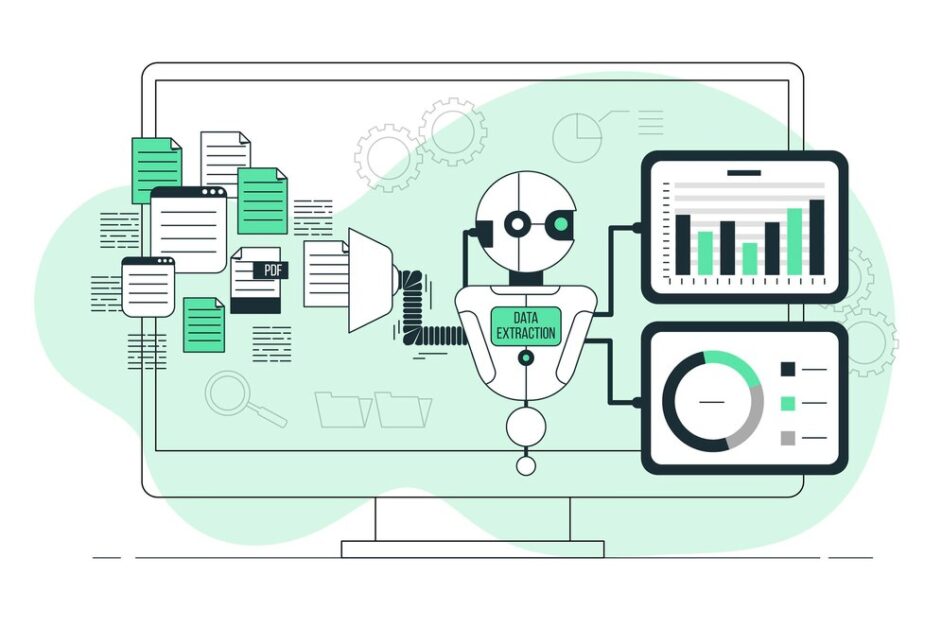11 December 2024
6 minutes read
MS in Automation in the USA

Key Takeaways
- High Demand: Automation and robotics graduates are highly sought after.
- Interdisciplinary: Combines multiple engineering disciplines.
- Innovative Education: Top U.S. universities offer advanced programs.
- Global Careers: Skills are applicable worldwide, offering diverse opportunities.
- Positive Outlook: The sector is expected to grow significantly.
The landscape of engineering is continually evolving, and at the heart of this evolution lies the dynamic fields of automation and robotics.
As we approach 2024, the integration of advanced manufacturing, artificial intelligence (AI), and control systems into industries heralds a new era of efficiency and innovation.
This comprehensive guide delves into the essential aspects of pursuing a Master’s degree in automation engineering, focusing on the USA’s leading role in robotics education and the opportunities it presents to aspiring professionals.
Automation and Robotics: The Gateway to Advanced Manufacturing
Automation and robotics represent the pinnacle of systems engineering, combining mechanical, electrical, and computer engineering to create complex, high-performance systems.
These technologies are not only transforming traditional industries like automotive and manufacturing but are also pivotal in emerging fields such as additive manufacturing and machine learning.
Why Pursue an MS in Automation and Robotics?
Choosing to specialize in automation and robotics through a Master of Engineering or Master of Science degree opens up a world of opportunities. The demand for skilled professionals who can design, manage, and innovate automated systems and robotic technologies is on a relentless rise.
This demand is fueled by the need for industries to increase efficiency, reduce human error, and innovate product development processes.
Automation and robotics are the forefront of technological innovation, transforming industries and creating new opportunities for skilled professionals.
Benefits of Pursuing an MS in Automation and Robotics
Pursuing a Master’s degree in Automation and Robotics in the USA offers numerous advantages and benefits to students looking to advance their careers and knowledge in this dynamic field. Here are some key benefits:
- High Demand for Skilled Professionals: Automation and robotics technologies are in high demand across various industries. Graduates with expertise in these areas are sought after for their ability to design, implement, and maintain automated systems.
- Diverse Career Opportunities: An MS in Automation and Robotics opens doors to a wide range of career paths. Graduates can choose to work in fields such as manufacturing, healthcare, aerospace, automotive, and more.
- Interdisciplinary Knowledge: These programs combine principles from mechanical engineering, electrical engineering, and computer science. Students gain a holistic understanding of how automation and robotics systems function.
- Innovation and Design: Students have the opportunity to work on cutting-edge projects and contribute to technological advancements in the field. This fosters creativity and innovation.
- Industry Collaboration: Top universities often have strong ties with industry leaders. Students can engage in collaborative research projects, internships, and co-op programs, providing real-world experience.
- Global Opportunities: Graduates of US universities are well-regarded worldwide. The skills acquired are transferable to international job markets, offering the potential for global career mobility.
- Networking Opportunities: Universities host events, conferences, and workshops that facilitate networking with professors, researchers, and industry professionals. These connections can lead to career opportunities and collaborations.
- Leadership Roles: Graduates are prepared to take on leadership roles in research, development, and management, making them valuable assets to organizations.
- Contribution to Society: Automation and robotics technologies play a crucial role in addressing societal challenges, such as healthcare advancements, disaster response, and sustainable manufacturing.

The Best Universities in the USA for MS in Automation and Robotics
The USA is home to some of the world’s top universities offering specialized programs in automation and robotics. These institutions are renowned for their cutting-edge research, state-of-the-art facilities, and strong industry connections.
Top Universities for MS in Automation and Robotics in the USA
| University Name | Location | Key Specializations | Notable Labs/Research Centers |
|---|---|---|---|
| Massachusetts Institute of Technology (MIT) | Cambridge, MA | AI, Robotics, Systems Engineering | Computer Science and Artificial Intelligence Laboratory (CSAIL) |
| Stanford University | Stanford, CA | Robotics, AI, Machine Learning | Stanford Artificial Intelligence Laboratory (SAIL) |
| Carnegie Mellon University | Pittsburgh, PA | Robotics, Automation Engineering, Control Systems | The Robotics Institute |
| University of California, Berkeley | Berkeley, CA | Robotics, AI, Advanced Manufacturing | Berkeley Automation Sciences Lab |
| Georgia Institute of Technology | Atlanta, GA | Control Systems, Industrial Automation, Robotics | Institute for Robotics and Intelligent Machines (IRIM) |
These universities are renowned for their pioneering research, advanced facilities, and strong industry connections, making them ideal choices for students interested in pursuing an MS in Automation and Robotics.
Navigating the Admission Process
Admission to Master’s programs in Automation and Robotics in the USA is competitive and requires applicants to meet specific requirements. Here are the typical admission criteria:
- Bachelor’s Degree: Applicants must hold a bachelor’s degree in engineering or a related field. A strong foundation in subjects like mechanical engineering, electrical engineering, or computer science is essential.
- GRE Scores: Most universities require Graduate Record Examination (GRE) scores. Competitive scores in the quantitative and analytical sections are important.
- Transcripts: Applicants must submit official transcripts from their undergraduate institution, showcasing their academic performance.
- Letters of Recommendation (LORs): Universities typically request 2-3 LORs from professors or professionals who can attest to the applicant’s academic and professional qualifications.
- Statement of Purpose (SOP): A well-written SOP is crucial. It should articulate the applicant’s academic and career goals, research interests, and why they are interested in the specific program.
- English Language Proficiency: For international applicants, proof of English language proficiency through tests like TOEFL or IELTS is required. Minimum score requirements vary by institution.
- Resume/CV: A detailed resume or CV highlighting academic achievements, research experience, internships, and relevant projects can strengthen an application.
- Interview (Optional): Some universities may conduct interviews as part of the admission process to assess an applicant’s suitability for the program.
- Prerequisite Courses (if necessary): Depending on the applicant’s undergraduate background, some universities may require the completion of prerequisite courses in relevant subjects.
- Portfolio (if applicable): Applicants to design-oriented programs may be asked to submit a portfolio showcasing their design and project work.
The integration of AI and robotics in manufacturing is not just about efficiency; it’s about enabling a new era of creativity and innovation.
Tuition Fees and Financial Aid for International Students
Studying in the USA comes with its financial considerations. Tuition fees for MS programs in automation and robotics can vary widely among universities.
| University Name | Average Tuition Fee (per academic year) | Financial Aid Options | Names of Scholarships |
|---|---|---|---|
| Massachusetts Institute of Technology (MIT) | $53,790 | Fellowships, Research Assistantships, Teaching Assistantships | MIT Scholarships, Research Assistantships |
| Stanford University | $55,473 | Fellowships, Research Assistantships, Teaching Assistantships | Stanford Graduate Fellowships |
| Carnegie Mellon University | $45,000 to $50,000 | Fellowships, Research Assistantships, Teaching Assistantships | CMU Presidential Fellowships |
| University of California, Berkeley | $26,544 (In-State), $41,232 (Out-of-State) | Grants, Scholarships, Work-Study | Berkeley Graduate Division Fellowships |
| Georgia Institute of Technology | $29,140 (In-State), $49,022 (Out-of-State) | Assistantships, Fellowships | GT Presidential Fellowships |
Financial aid options vary by institution and may include scholarships, fellowships, assistantships, and work-study programs. Prospective students should contact the financial aid office of their chosen university for the most current information and opportunities.

Career Prospects and Industry Outlook
Graduates with an MS in automation and robotics are highly sought after by employers across various sectors. The Bureau of Labor Statistics projects a significant annual growth rate in jobs related to automation engineering, highlighting the bright career prospects in this field.
The Bureau of Labor Statistics projects a significant annual growth rate in automation engineering jobs, underscoring the robust demand and dynamic evolution of the field.
| Job Role | Industry Sectors | Expected Salary Range | Outlook and Trends |
|---|---|---|---|
| Automation Engineer | Manufacturing, Automotive, Aerospace | $75,000 – $105,000 | High demand due to increasing automation in manufacturing processes |
| Robotics Engineer | Healthcare, Defense, Consumer Electronics | $80,000 – $120,000 | Growing need for precision and efficiency in operations |
| Systems Designer | Information Technology, Telecommunications | $70,000 – $100,000 | Expansion of IoT and smart systems driving demand |
| Project Manager | Engineering Services, Research and Development | $85,000 – $115,000 | Leadership roles in tech projects are increasingly vital |
| R&D Specialist | Biotechnology, Pharmaceutical, Environmental | $90,000 – $130,000 | Innovation in robotics and automation for research and development |
The industry outlook for careers in automation and robotics is exceptionally positive, with significant growth expected in the coming years. Advances in technology, coupled with the increasing application of automation and robotics across various sectors, underscore the promising future for professionals in this field.
Conclusion
The journey to pursuing an MS in automation and robotics in the USA is a challenging yet rewarding path, offering unparalleled opportunities for personal and professional growth.
As we move closer to 2024, the importance of automation and robotics in shaping our future becomes ever more apparent. For those looking to carve out a career in this exciting field, now is the time to take the next step.
Define industry excellence with Ambitio Pro as your partner. Our commitment to your growth is reflected in our tailored programs, expert-led training, and a community that inspires and challenges you to set new standards in your professional life.
FAQs on Pursuing an MS in Automation and Robotics in the USA
What undergraduate degree is required to pursue an MS in Automation and Robotics?
An undergraduate degree in engineering (mechanical, electrical, computer) or a related field is typically required.
What are the key components of the admission process for these programs?
Key components include GRE scores, undergraduate GPA, Letters of Recommendation (LORs), and a Statement of Purpose (SOP).
How long does it take to complete an MS in Automation and Robotics?
Most programs take 1-2 years to complete, depending on full-time or part-time enrollment and the nature of the thesis/project work.
Are there financial aid options available for international students?
Yes, financial aid options include scholarships, research assistantships, and teaching assistantships. Contacting the universities directly is advised for detailed information.
What career opportunities are available after completing an MS in Automation and Robotics?
Graduates can pursue careers in R&D, systems design, project management, automation engineering, robotics engineering, and more across various industries.

You can study at top universities worldwide!
Get expert tips and tricks to get into top universities with a free expert session.
Book Your Free 30-Minute Session Now! Book a call now




























